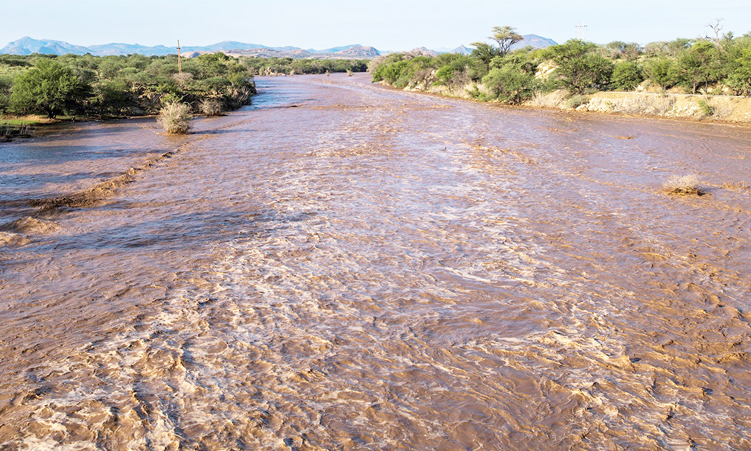The community of Omaruru fears that the town would run dry next year, forcing it to depend on water imported from other areas to survive.
This comes after the Omaruru Town Council recently informed its residents that it is in the process of expanding its groundwater extraction capabilities by adding two new boreholes in the Omaruru River to the existing nine.
This was necessitated by the town’s growing population and rapid development.
Community members argue that the town’s water source is already close to depletion due to a lack of inflow into the catchment area, dilapidating infrastructure and poor water resource management.
Apart from these claims, the council further had to contend with N$65 million in water debt since last year.
This has shrunk to N$20 million due to the intervention of RedForce debt collectors, Omaruru chief executive Valentinus Sindongo said.
Furthermore, the community claims there is a lack of transparency on well levels, pumping data and water losses.
“Essentially, they’re not drilling into an aquifer, but a catchment. This means the existing water is all that’s available, and adding two more wells would only hasten its depletion,” Gunnar Waldschmidt, a vegetable producer and former member of the now defunct Omaruru Basin Management Committee, said.
The community believes the council’s decision to create more boreholes was a “desperate” attempt to keep its primary income generator, water supply, operating.
Omaruru is the only sizeable community in Namibia which is not connected to NamWater.
The council has employed a local agent to do an environmental impact assessment (EIA) to obtain drilling permits.
Resident and plot owner Lothar Kolmitz also said more water being extracted would speed up depletion.
Some farmers have had to significantly reduce production due to a lack of water.
The renewal of an abstraction and use permit is currently on hold pending an environmental clearance certificate, which necessitates the EIA.
Waldschmidt said Omaruru has a water allocation system based on permits, but there’s growing concern about the increase in demand and insufficient water supply.
He said an independent investigation involving the the ministry responsible for local authorities is “urgently needed”, along with immediate water restrictions.
Sindongo, however, says Omaruru’s water is managed well, and there is no threat of the town running dry soon.
“I can assure you that the current water supply is adequate. Our monitoring systems indicate promising levels, and we are prepared to implement measures if necessary.
“The council is also aware of some residents’ reluctance to engage in new investment opportunities, but it’s crucial for the town’s growth and development that we continue to progress and not remain stagnant,” he said.
Concerning public engagement efforts, he said the council has been proactive.
Addressing the specific issue of water exploration in the local river, Sindongo clarified the areas of interest for borehole development are not on private properties.
The challenge arises in accessing these areas, which may require passage through private land. However, these areas fall within the local authority’s jurisdiction.
When approached for comment, Ministry of Agriculture, Water and Land Reform spokesperson Jona Musheko said the ministry is aware of the matter.
“We recently sent a team to investigate the matter and make appropriate recommendations on the way forward,” he said.
Stay informed with The Namibian – your source for credible journalism. Get in-depth reporting and opinions for
only N$85 a month. Invest in journalism, invest in democracy –
Subscribe Now!






